Whether you’re suffering from chronic pain or simply want to experience optimal health, we strive to help people live fuller, happier, healthier lives. Our goal is to remove stress from the body and allow the brain and the body to communicate properly. The body is self-healing…sometimes it just needs a nudge in the right direction.
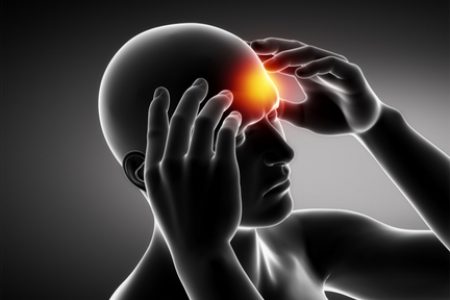
Migraine headaches are all too common, and plenty of treatments can lead to confusion and being overwhelmed by the myriad of options out there. The ramifications of suffering from migraines are widespread for some people. It can affect their work, family, and social life and cause fatigue, worry, and fear.
Read more>
The upper neck connection
The upper cervical spine (where your head and neck join) has no interlocking joints that hold them in place, which can cause various problems if they shift from their normal position. This area plays a crucial role in protecting the spinal cord and brainstem and regulating blood flow to and from the brain. The nerves and blood vessels that run throughout the upper neck play a vital role in the pathophysiology of migraines. NUCCA care involves aligning the structures surrounding these delicate areas that are a prominent issue in those suffering from migraines. As the Association of Migraine Disorders states, people with migraine illness have a nervous system that is not working correctly. In migraine sufferers, their nervous system overreacts to stimuli creating an unusual wave of brain activity that leads to a headache. Calming and clearing the nervous system is essential to solving the migraine puzzle.
A concussion is a traumatic brain injury that affects how your brain functions; usually, the effects are temporary. Mild to moderate brain injury is common following a concussion or whiplash trauma due to the forces on the brain during the injury. The human brain is a very soft structure, suspended in a watery fluid called cerebrospinal fluid (CSF).
Read more>
In a concussion, the brain is forced forward and backward in the skull. The brain impacts the inside of the skull, leading to bruising or bleeding inside the brain. In some cases, patients temporarily lose consciousness. The long-term consequences of a concussion can include mild confusion, difficulty concentrating, sleep disturbances, irritability, forgetfulness, loss of sex drive, depression, and emotional instability. By definition, a concussion is a head trauma. Any head trauma also results in a neck trauma. The concussive impact of a head injury will also affect the area of highest instability, the upper cervical spine. Misalignment in the upper cervical spine directly affects how the brain heals from a concussion. Restoring upper cervical alignment is critical to the healing puzzle after a concussion. There is no magic cure or timeline for healing concussions. NUCCA Chiropractic is one part of the healthcare team needed to restore the patient to normal life post-concussion. At The Balanced Atlas, we partner with dozens of integrative healthcare practitioners dedicated to restoring the lives of those suffering from post-concussion symptoms.
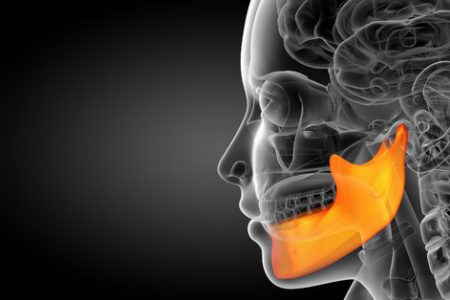
The temporomandibular joint (TMJ) is the small joint in front of each ear and attaches the lower jaw to the skull. These joints work together with various jaw muscles and ligaments, making it possible to open and close the mouth, chew, speak and swallow. A painful TMJ dysfunction (TMJD) may occur when the temporomandibular joints, jaw muscles, and ligaments are prevented from working together properly.
Read more>
So what does your neck have to do with your jaw?
Your upper neck contains a complex web of nerves that feed into an area influencing jaw function. Head and neck alignment also affects the biomechanics of a bite, contributing to jaw pain. The NUCCA adjustment is an effective way to gently and precisely correct misalignments in the upper neck, allowing the head and jaw to return to their proper orientation. Proper alignment of the head and neck helps to reduce unnecessary muscle tension and stress on the jaw.
Other symptoms of TMJ dysfunction (TMJD) can include:
Neck pain can come on gradually through repetitive stress like sitting at a desk for hours at a time, sleeping wrong, or from previous injuries like whiplash, sports injury, slips, falls, etc. Sometimes neck pain can develop into tingling and numbness down the arm and into the hand due to compression of nerves in the neck. Neck pain can also trigger a headache called cervicogenic, which means “originating from the neck.”
Read more>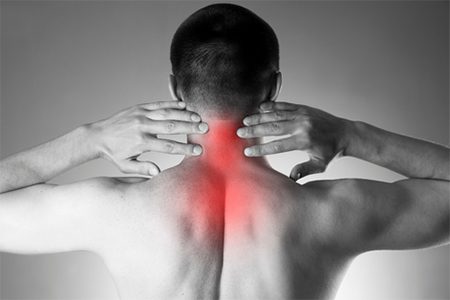
How to help neck pain:
We focus on the upper neck because it is the most important part of the entire spine. It is the job of the upper cervical spine to protect the brainstem, and it can impact our health, including chronic neck pain. When the structures in the neck become misaligned and shift off the center, this abnormal load on the neck joints causes inflammation and irritation. We can take that stress off the joints by gently bringing the head and neck back into alignment and getting you feeling better. The sooner you seek care, the better we can get you feeling better and avoid things like degeneration or disc problems.
NUCCA doctors are trained to assess the head and neck for abnormal alignment and gently bring the structures to a more vertical position. The NUCCA treatment is gentle, specific, and safe. There is no twisting of the neck or spine involved in the NUCCA treatment. We strongly recommend starting with the NUCCA assessment to detect the root cause of your neck pain.
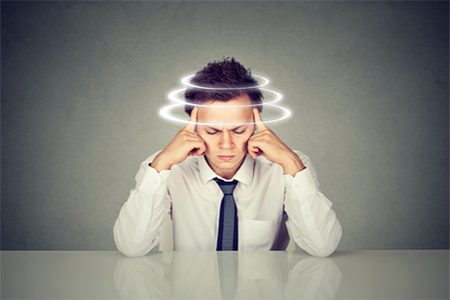
Vertigo is the sudden onset of internal or external movement or a spinning sensation often triggered by head movement. Dizziness is slightly different in that one can feel faint, have an altered sense of balance, feel lightheaded, or feel as if your head is spinning.
Read more>There are several systems in place in our body that work to maintain balance.
When mixed signals come from any of these systems, it can confuse the brain as it is trying to interpret information from the body. This confusion can result in dizziness, lack of balance, poor coordination, and more.
Poor neck posture, neck disorders, or trauma to the cervical spine cause this confusion. Dizziness often results from a head injury or whiplash that disrupts head and neck alignment. This dizziness most often occurs after moving your neck and can also affect your sense of balance and concentration.
Vertigo/dizziness and the upper neck
One of the common causes of dizziness and vertigo is upper neck misalignments. Proper alignment of the Atlas vertebra (first cervical bone, C1) is paramount to the proper function of the coordination and balance centers of the brain and body. When this bone gets locked into place along with improper head alignment, it can cause various neurological symptoms, including dizziness and vertigo. When the upper neck is misaligned, it can stress the brainstem and disrupt the free-flowing neurological information to and from the brain. This additional stress on the brainstem can cause postural distortions seen throughout the body, like a high shoulder and an imbalanced pelvis. Between postural imbalances and x-rays, we can bring the head and neck back into alignment for better nervous system function and communication using the NUCCA protocol.
Brain fog is not a medical condition but a symptom that can cause memory problems, inability to focus, lack of mental clarity, and poor concentration. Brain fog is also described as “mental fatigue.” Depending on the severity of brain fog, there is a chance it can get in the way of school, work, and social life. Many patients report feeling tired, hazy, and forgetful. They have a hard time focusing and an inability to concentrate.
Read more>
It’s also common to experience head pressure or headaches. NUCCA chiropractic treatment can successfully treat brain fog because the brain depends on proper blood supply and spinal fluid circulation to function optimally. If there is a misalignment in your upper cervical spine, the vertebral artery may be obstructed and impede blood flow to the brain. Misalignment in the upper cervical spine may also negatively alter and disrupt the proper flow of the cerebrospinal fluid (CSF), leading to brain fog and/or head pressure. In short, your brain may not get the proper blood flow and oxygen required to function correctly.
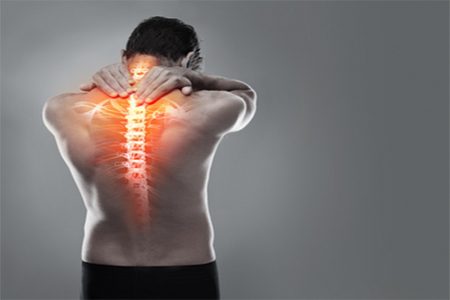
If you have lower back pain that shoots down either leg, you may be suffering from the symptoms of sciatica. Sciatica is a condition that affects your sciatic nerve. The sciatic nerve is located in your lower back, branches through your hips and buttocks, and trails down both legs. Sciatica typically only affects one side of your body or the other, but most forms of sciatica cause lower back pain. If you suffer from this painful condition, we can help.
Read more>
What Is Sciatica?
Sciatica is caused by compressed nerves. It could be due to a herniated disc, a bone spur, or a condition called spinal stenosis that causes the spine to become more narrow. Regardless of why the nerve becomes compressed, pain results and can settle in your lower back. This compression may cause pain, tingling, or numbness in your legs.
Some things can worsen sciatica, such as sitting for long periods or sudden movements caused by coughing or sneezing. If you are suffering from sciatica, booking an appointment can help alleviate your pain without needing surgery.
Fortunately, surgery is often not the only treatment that relieves the pain of sciatica. NUCCA chiropractic adjustments can be extremely beneficial in relieving lower back pain and pain associated with sciatica, especially in sciatica caused by injuries such as those that happen during football, hockey, or other contact sports. The gentle NUCCA treatment realigns your head and neck, allowing the brain to rebalance your hips, loosening the tension across the lumbar spine and relieving pressure on the sciatic nerve. As a result, you will feel better and have improved mobility.